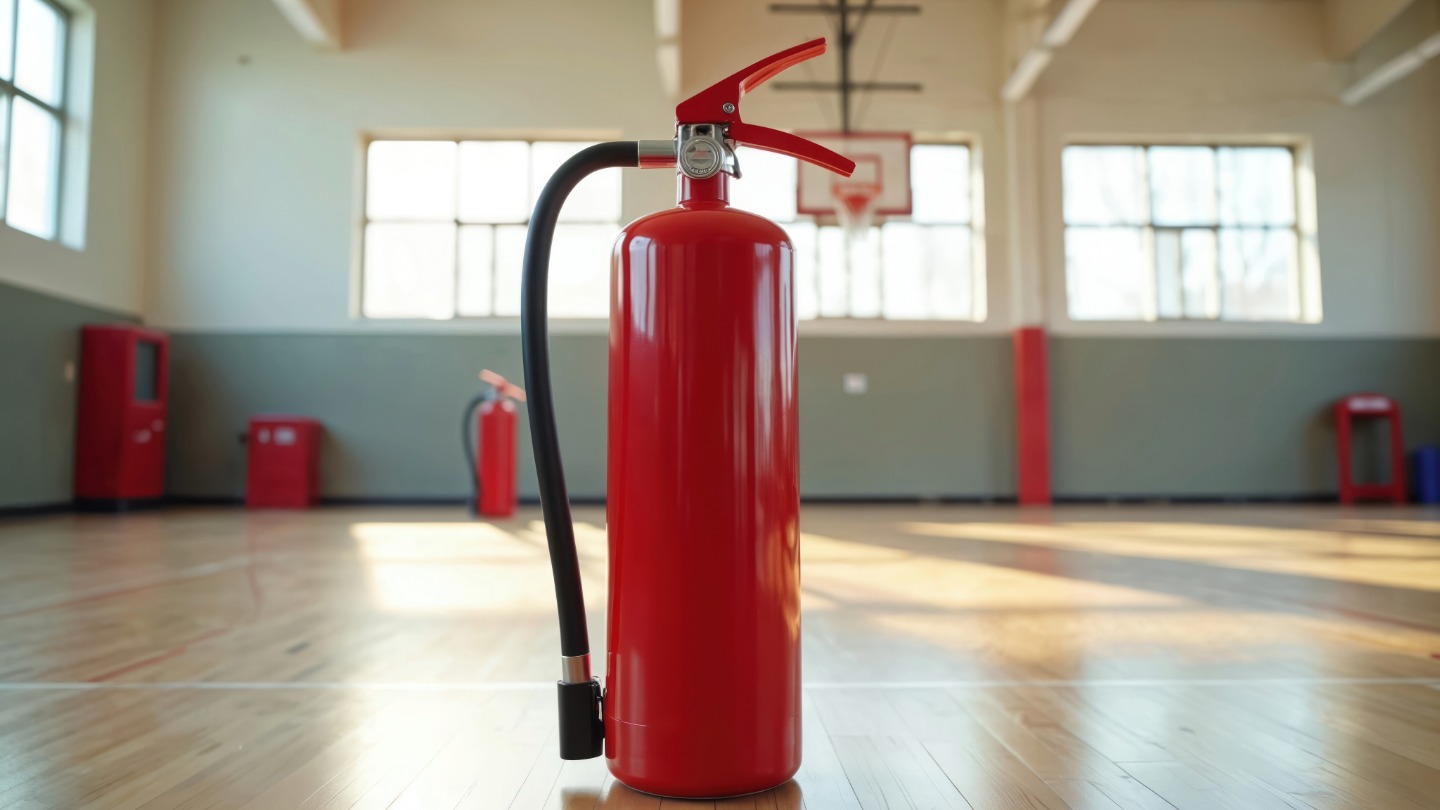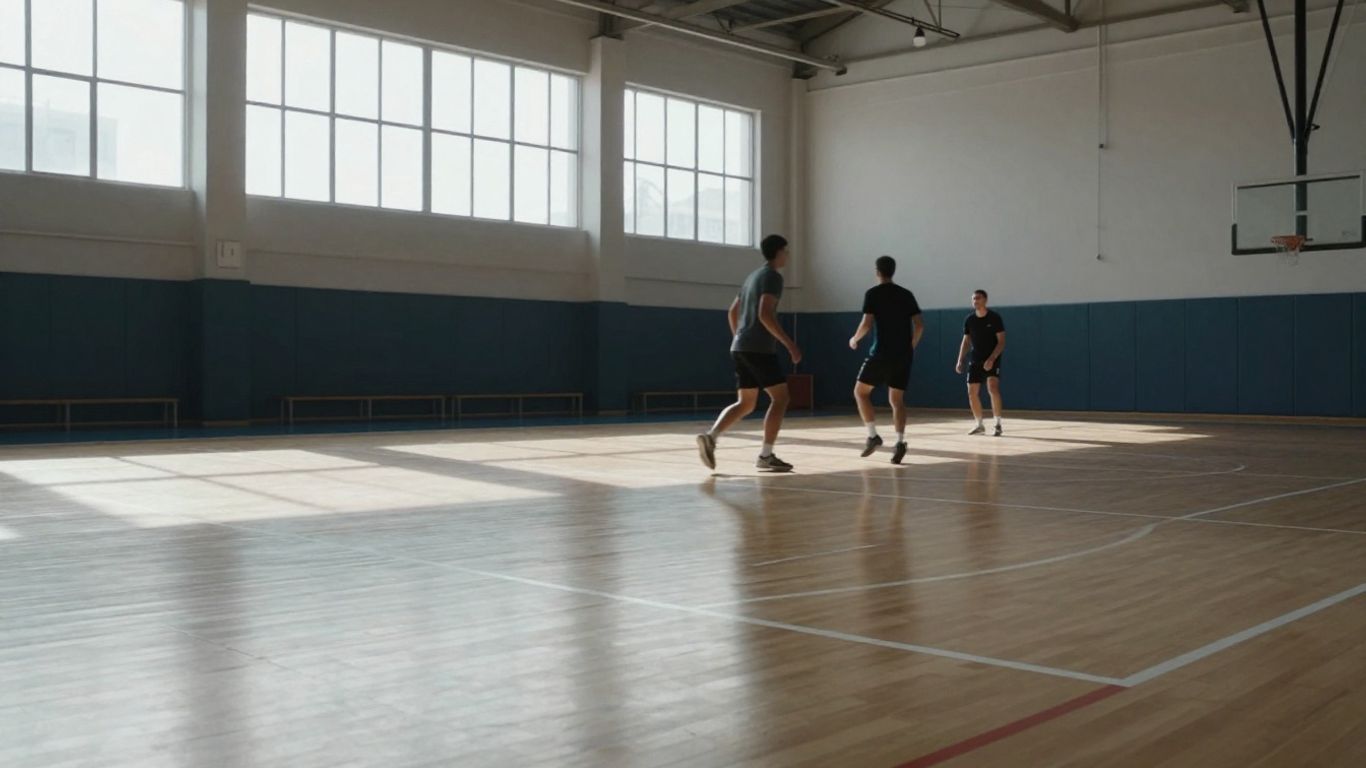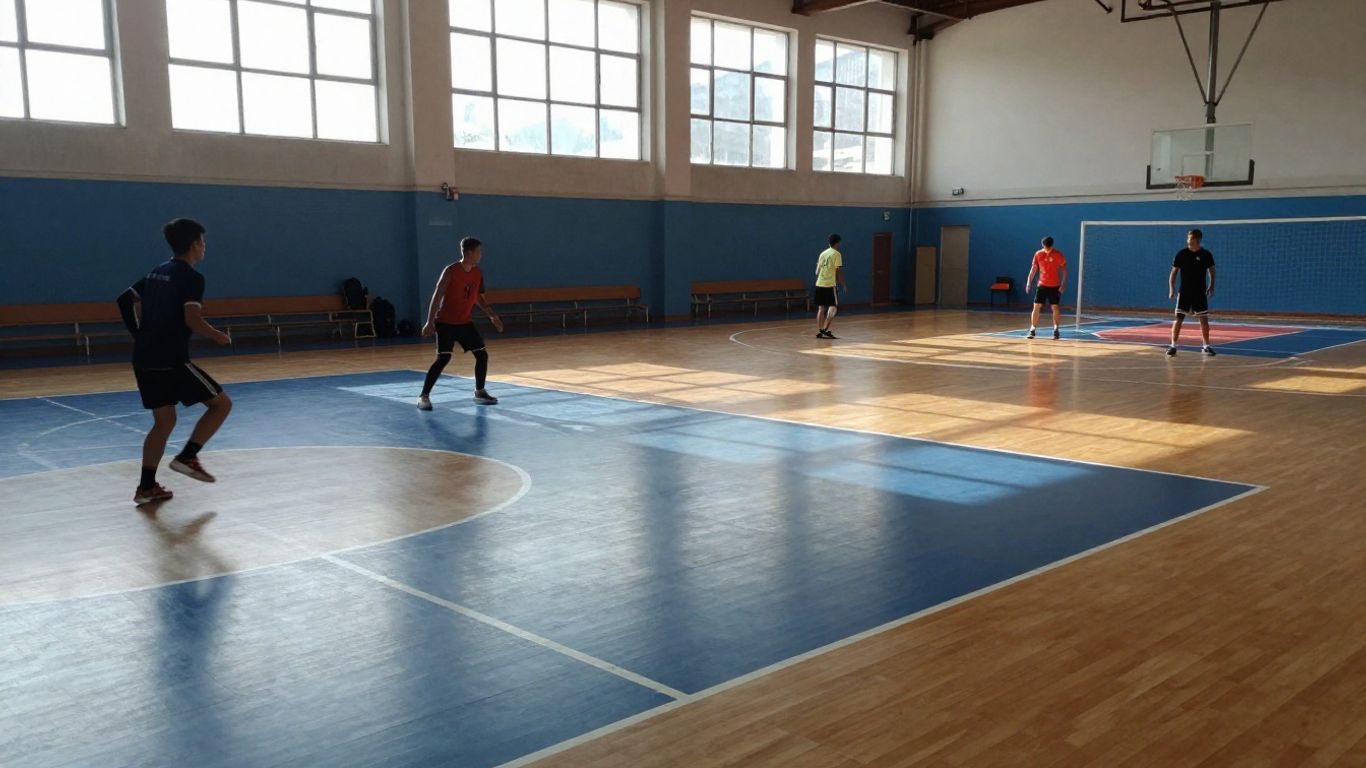Birmingham’s sports halls are pretty good, but to really make them shine and get them ready for bigger events, we need to do some work. This means making some smart Retrofit Upgrades to bring them up to FIBA standard. It’s not just about basketball, though; these changes will make things better for everyone who uses the halls.
Key Takeaways
- We need to check what we’ve got now and see what needs changing to meet FIBA rules.
- Making halls FIBA ready means new floors, better lights, and modern scoreboards.
- Doing these Retrofit Upgrades in a green way helps the planet and saves money.
- There will be problems like money and building mess, but we can work through them.
- Getting these halls up to scratch will bring in more big sports events and help the community.
.
Assessing Current Sports Hall Infrastructure
Evaluating Existing Facilities for FIBA Compliance
Right, so before we even think about shiny new scoreboards and sprung floors, we need to take a long, hard look at what we’ve already got. Are Birmingham’s sports halls actually up to scratch? FIBA has pretty strict rules, and it’s not just about the size of the court. We’re talking about everything from the height of the ceiling to the positioning of the basketball hoops. A thorough evaluation is the first step.
- Court dimensions must meet FIBA standards.
- Clear zones around the court need to be adequate.
- Accessibility for disabled athletes and spectators is essential.
.
Identifying Structural Limitations for Retrofit Upgrades
Okay, let’s say we’ve found some halls that are almost there. What’s stopping them from being perfect? Often, it’s structural stuff. Can the roof handle extra weight if we want to install better lighting? Are the walls strong enough to support new basketball hoops? Is the existing foundation suitable for a fancy new floor? These are the questions we need to answer. It’s not just about aesthetics; it’s about safety and practicality.
It’s important to get a structural engineer involved early on. They can assess the load-bearing capacity of the building and identify any potential problems before we start spending money on upgrades.
Analysing Current Energy Consumption in Sports Halls
And then there’s the boring but important stuff: energy. How much gas and electricity are these places guzzling? Old sports halls can be incredibly inefficient, with outdated heating systems and poor insulation. Understanding the current energy consumption is vital for planning sustainable upgrades. We need to look at:
- Heating and cooling systems.
- Lighting usage.
- Insulation levels.
| Energy Source | Average Consumption (per year) | Cost (per year) |
|---|---|---|
| Electricity | 50,000 kWh | £7,500 |
| Gas | 30,000 kWh | £3,000 |
Key Retrofit Upgrades for FIBA Standard

Upgrading Birmingham’s sports halls to meet FIBA standards involves several key areas. It’s not just about slapping on a new coat of paint; it’s about making sure the facilities are up to par for international-level basketball and other sports. Let’s get into the specifics.
Implementing Advanced Flooring Systems
The flooring is arguably the most important aspect of a sports hall. It needs to provide the right level of grip, shock absorption, and durability. Think about it – athletes are constantly running, jumping, and pivoting. A poor surface can lead to injuries and affect performance. We’re talking about moving away from old, worn-out surfaces to modern, high-performance options. For example, sports hall flooring needs to be top-notch.
- Engineered wood flooring offers excellent resilience and a classic look.
- Synthetic surfaces, like polyurethane, are durable and easy to maintain.
- Sprung floors provide enhanced shock absorption, reducing the risk of injuries.
.
Upgrading Lighting for Optimal Visibility
Lighting is another critical factor. You can’t expect athletes to perform at their best if they’re squinting or dealing with glare. The goal is to create a well-lit environment that’s comfortable for both players and spectators. This means replacing old, inefficient lights with modern, energy-efficient alternatives.
Proper lighting design minimises shadows and ensures uniform illumination across the entire playing surface. This not only improves visibility but also enhances the overall viewing experience for spectators.
Modernising Scoreboards and Timing Systems
Outdated scoreboards and timing systems can be a real drag. They’re often difficult to read, unreliable, and lack the features needed for modern sports. Upgrading to digital scoreboards and accurate timing systems is a must. These systems should be easy to operate, highly visible, and capable of displaying all the necessary information, such as scores, time, fouls, and player stats. Think about the difference between a clunky old analogue clock and a sleek, modern digital display – it’s night and day. You can find more information in the 2025 GameTime Catalogue.
Here’s a quick comparison of old vs. new scoreboards:
| Feature | Old Scoreboards | Modern Scoreboards |
|---|---|---|
| Visibility | Poor | Excellent |
| Information Display | Limited | Comprehensive |
| Reliability | Unreliable | Highly Reliable |
| Ease of Use | Difficult | User-Friendly |
Sustainable Retrofit Upgrades in Birmingham
Integrating Energy-Efficient Heating Solutions
Okay, so, making these sports halls better isn’t just about the games, right? It’s also about being smart with energy. Think about the heating – those old systems are probably costing a fortune and chucking out loads of emissions. We’re looking at stuff like high-efficiency boilers and heat pumps. These can seriously cut down on energy use and save money in the long run. Plus, it’s just the right thing to do for the environment. It’s a win-win, really. Upgrading to efficient heating is a must.
Utilising Renewable Energy Sources for Sports Halls
Why not go green? Birmingham has got to start thinking about renewable energy. Solar panels on the roof are an obvious one, but there’s more to it than that. We could look at ground source heat pumps, or even small-scale wind turbines if the location is right. It’s about reducing our reliance on fossil fuels and showing that Birmingham is serious about sustainability. It’s not just a fad; it’s the future.
- Solar Panels: Generate electricity from sunlight.
- Ground Source Heat Pumps: Use the Earth’s natural heat.
- Small Wind Turbines: Capture wind energy.
.
Enhancing Ventilation for Improved Air Quality
Let’s be honest, some of these sports halls can get a bit stuffy. Good ventilation is key, not just for comfort but also for health. We’re talking about installing modern ventilation systems with heat recovery. This means fresh air without losing all the heat we’ve paid for. Plus, better air quality can actually improve athlete performance. It’s all connected, isn’t it? Proper ventilation systems are important.
Improving air quality is not just about comfort; it’s about creating a healthier environment for everyone using the sports halls. This includes athletes, spectators, and staff. By investing in modern ventilation systems, we can reduce the risk of respiratory problems and improve overall well-being.
Overcoming Challenges in Retrofit Upgrades
Retrofitting sports halls to meet FIBA standards isn’t always a walk in the park. There are a few hurdles that need to be considered, from money to making sure everything is done by the book. It’s a bit like trying to renovate your house while still living in it – tricky, but doable with the right planning.
Addressing Budgetary Constraints for Renovations
Budgets can be tight, especially when you’re dealing with big projects like sports hall upgrades. Finding the right balance between what you need and what you can afford is key. It’s about prioritising the most important upgrades first, like the flooring and lighting, and then looking at other improvements later on. Maybe there are some cheaper alternatives that still do the job well, or perhaps phasing the project could help spread the cost over a longer period.
Minimising Disruption During Construction Phases
No one wants a sports hall out of action for ages. It’s important to keep the disruption to a minimum while the work is being done. This means:
- Careful scheduling to avoid peak times.
- Working in phases to keep some areas open.
- Communicating clearly with everyone who uses the hall about what’s happening and when.
.
Good communication is really important. Keep everyone in the loop, from the sports clubs to the local community. Regular updates can help manage expectations and prevent misunderstandings.
Navigating Regulatory Compliance for Sports Facilities
There’s a lot of red tape when it comes to building regulations and safety standards. Making sure you’re following all the rules can be a bit of a headache, but it’s essential. This often means working closely with the local council and getting all the necessary approvals before starting any work. It’s better to be safe than sorry, especially when it comes to things like accessibility and fire safety.
Benefits of FIBA Standard Retrofit Upgrades
Attracting Major Sporting Events to Birmingham
Upgrading sports halls to meet FIBA standards is a game-changer for Birmingham. It positions the city as a prime location for hosting major national and international basketball tournaments. Think about it: better facilities mean more prestigious events, bringing in visitors and boosting the local economy. It’s not just about basketball, either; upgraded halls can attract other indoor sports, expanding the range of events Birmingham can host. This increased visibility can also lead to more investment in the city’s sporting infrastructure.
Improving Athlete Performance and Safety
FIBA standards aren’t just about aesthetics; they’re about creating an environment where athletes can perform at their best and, crucially, stay safe. Upgrades like advanced flooring systems reduce the risk of injuries, while improved lighting ensures optimal visibility. Modernised scoreboards and timing systems provide accurate and reliable information, enhancing the competitive experience. It’s all about giving athletes the tools they need to succeed. For example, squash court refurbishment can significantly improve player safety and performance.
Boosting Community Engagement in Sports
Upgrading sports halls isn’t just for elite athletes; it’s for the whole community. Better facilities encourage more people to get involved in sports, from casual players to aspiring professionals. Modern, well-equipped halls can host a wider range of activities, catering to different age groups and abilities. This increased participation can have a positive impact on public health and well-being, creating a more active and engaged community. Plus, having top-notch facilities can inspire the next generation of athletes.
Upgrading sports halls to FIBA standards is a win-win situation. It benefits athletes, attracts major events, and boosts community engagement. It’s an investment in the future of sport in Birmingham.
Here’s a quick look at the potential impact:
- Increased participation in local sports leagues
- More opportunities for youth sports programmes
- Greater community pride in local sports facilities
.
Funding and Investment for Retrofit Upgrades
Upgrading Birmingham’s sports halls to meet FIBA standards isn’t just about better facilities; it’s about investing in the city’s future. But where does the money come from? It’s a mix of different sources, each with its own potential and challenges. Let’s have a look.
Exploring Government Grants for Sports Infrastructure
Government grants are often the first place people look, and for good reason. They can provide a significant chunk of the funding needed. However, securing these grants can be competitive. You’ll need a solid plan, demonstrating the project’s benefits to the community and its alignment with government objectives. Think about highlighting how the upgrades will promote health, encourage participation in sports, and boost the local economy. Also, make sure you meet all the eligibility criteria and submit a compelling application. The application process can be lengthy and complex, so start early and get expert advice if needed. For example, there are case studies of successful funding applications for similar projects that can provide useful insights.
Securing Private Sector Partnerships
Private sector partnerships can be a game-changer. Businesses might be interested in sponsoring a sports hall in exchange for advertising opportunities or naming rights. This can be a win-win situation, providing the funding needed for the upgrades while giving the business valuable exposure. Approach local businesses, especially those with a connection to sports or the community. Highlight the benefits of associating their brand with a modern, high-quality sports facility. Be prepared to negotiate and offer attractive partnership packages. Remember, it’s about building a mutually beneficial relationship. A well-structured partnership agreement is essential to protect the interests of both parties.
Leveraging Community Funding Initiatives
Don’t underestimate the power of community support. Local fundraising initiatives can generate significant funds and create a sense of ownership and pride in the project. Consider organising events like fun runs, bake sales, or crowdfunding campaigns. Engage local schools, sports clubs, and community groups to get involved. Transparency is key – keep the community informed about how the funds are being used and the progress of the upgrades. This will build trust and encourage further support.
Community funding not only provides financial support but also fosters a sense of collective responsibility and investment in the success of the sports hall upgrades. It’s about building a legacy for future generations.
Here are some ideas for community funding:
- Local business sponsorships
- Crowdfunding campaigns
- Charity sports events
.
Future-Proofing Birmingham’s Sports Halls

Adopting Smart Building Technologies
Smart building tech is becoming more common, and sports halls are no exception. Think about automated lighting that adjusts based on natural light levels, or heating and cooling systems that learn usage patterns to optimise energy consumption. These technologies not only reduce operational costs but also create a better environment for athletes and spectators.
- Smart lighting controls
- Automated HVAC systems
- Real-time energy monitoring
.
Planning for Long-Term Maintenance and Durability
It’s easy to get caught up in the initial excitement of a retrofit, but planning for the future is key. Choosing durable materials and implementing a proactive maintenance schedule will save money in the long run. Regular inspections can catch small problems before they become big, expensive ones. Consider refurbishing sports hall floors instead of replacing them entirely to save costs.
Ensuring Adaptability for Multi-Sport Use
Birmingham’s sports halls should be flexible enough to accommodate a variety of sports and activities. This might mean installing modular flooring systems, adjustable basketball hoops, or adaptable seating arrangements. Versatility is the name of the game. This approach maximises the use of the facilities and ensures they remain relevant for years to come.
Designing for adaptability also means considering the needs of different user groups, from elite athletes to community sports clubs. By creating inclusive and accessible spaces, Birmingham can ensure that its sports halls serve the entire community.
Making sure Birmingham’s sports halls are ready for the future is super important. We’ve been doing this for ages, making sure floors are top-notch for all kinds of sports. Want to know more about how we make sports hall floors last? Check out our website!
Conclusion
So, that’s the story. Getting Birmingham’s sports halls up to FIBA standards isn’t just about putting in new hoops or painting lines. It’s a big job, a real team effort. But when you think about all the good it’ll do for local basketball, for the players, and for the city, it just makes sense. It’s about giving our athletes the best places to play and making sure Birmingham stays on the map for sports. It’s a win-win, really.
New Junckers Sports Floor Installation in Wakefield, West Yorkshire
Plan a FIBA upgrade → Sports Hall Refurbishment
Frequently Asked Questions
What does it mean to upgrade a sports hall to FIBA standard?
Making sports halls meet FIBA standards means upgrading them to be suitable for top-level basketball games. This includes things like the playing surface, lighting, scoreboards, and even the size of the court. It’s about making sure the venue is perfect for professional basketball.
Why is it important for Birmingham’s sports halls to meet FIBA standards?
The main goal is to attract big basketball events to Birmingham, which helps the city’s reputation. It also means better, safer places for athletes to play, and it encourages more people in the community to get involved in sports.
How will these upgrades be paid for?
We’re looking at various ways to pay for these changes. This includes asking for money from the government, working with private companies who might want to invest, and also getting help from local community groups and fundraising efforts.
Will sports halls be closed during the upgrade work?
We’re trying to make sure the work causes as little trouble as possible. This means careful planning to do the upgrades in stages or during times when the halls aren’t used much, like school holidays, so sports activities can continue.
How will these upgrades help the environment?
We’re focusing on making the halls more energy-efficient by using better heating and cooling systems, and also looking into renewable energy sources like solar panels. This helps the environment and saves money on energy bills in the long run.
Will these upgrades only benefit basketball, or other sports too?
Yes, absolutely! While the upgrades are designed for basketball, many of the improvements, like better flooring, lighting, and air quality, will benefit all sports played in the halls, making them better for everyone.


